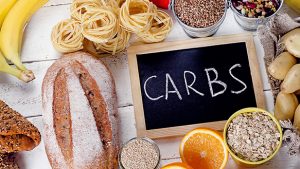 You may think a carbohydrate is a carbohydrate is a carbohydrate. The truth is that not all carbs are created equal, at least not from a nutritional standpoint.
You may think a carbohydrate is a carbohydrate is a carbohydrate. The truth is that not all carbs are created equal, at least not from a nutritional standpoint.
Good Carbs vs Bad Carbs
Many of the foods we love to eat and drink has processed carbs. Over consumption of these carbs can lead to obesity and type II diabetes. Some examples of processed carbs include: breads, pasta, cookies, frozen vegetables, and candies.
The problem with the processed carbs are that they are: high in calorie density, high in refined sugars, low in many nutrients, low in fiber, high in sodium, and often high in cholesterol and trans fat.
On the more nutritional side of carbs, you have fiber. Fiber is the part in plant foods that humans can’t digest. Even though fiber isn’t absorbed, it does all sorts of great stuff for our bodies.
Fiber slows down the absorption of other nutrients eaten at the same meal, including carbohydrates. This can help decrease your risk of type II diabetes.
Whole grains are less processed. Whole grains contain the germ and the bran portions of the grain along with all the antioxidants, vitamins and minerals are high in fiber, virtually fat-free, and are more slowly digested and absorbed than refined carbs. Whole grain carbs include brown and wild rice, barley, whole-wheat pasta, bran cereals, whole kernel corn, and popcorn.
According to the Surgeon General, “everyone should have three servings per day of whole-grain carbohydrates”.
Some additional benefits to consuming good carbohydrates: high in naturally occurring fiber (helps lower not only blood sugar and insulin levels but also LDL bad cholesterol, prevents constipation, hemorrhoids, and certain cancers), low in sodium, and low in saturated fat.
Why Carbs Matter
According to the National Academies Institute of Medicine, they recommend that people focus on getting “more good carbs with fiber into their diet”. Also in their report, “to meet the body’s daily nutritional needs while minimizing risk for chronic disease, adults should get 45% to 65% of their calories from carbohydrates, 20% to 35% from fat, and 10% to 35% from protein”.
Diets with whole-grain foods and other plant foods low in total fat, saturated fat, and cholesterol can help reduce the risk of heart disease and certain cancers. Since whole grains are absorbed more slowly, a person tends to feel fuller longer. This can assist those who are trying to lose weight.
According to a study by the University of Minnesota’s School of Public Health, researchers found that women who ate at least one serving a day of whole grain were healthier and lived longer. Another study from Brigham and Women’s Hospital in Boston found that “people who ate nine servings a week of whole grains weighed 5-8 pounds less than those who ate less than two whole-grain servings per week”.
As an important note, be sure to eat foods that are naturally high in fiber, not foods labeled “high in fiber” because fiber was added to them.
Want to learn more?
If you are interested eating healthier, weight loss, or overall nutrition, please contact us and we can help you on your journey. You may visit our website: http://valeoidealweightloss.com or contact us by calling 281-488-5877.
CLICK this link to Schedule a FREE Discovery Session to see if this is right for you!!

